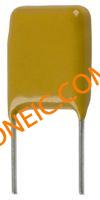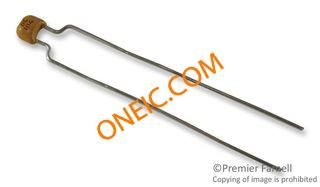1C20Z5U104M
Radial leaded ceramic capacitors for various voltages
Manufacturer: ['sprague', 'vishay']
series introduction
The 1C20Z5U104M Series is a premier range of surface-mount multilayer ceramic capacitors (MLCCs) designed to meet the demands of modern electronic applications, particularly where size, performance, and reliability are paramount. This series features a Z5U dielectric material, characterized by its ability to maintain stable capacitance values within a temperature range of -10°C to +85°C, with a capacitance tolerance of ±20%. This makes the 1C20Z5U104M Series an excellent choice for environments that require dependable performance across varying conditions.
One of the key attributes of the 1C20Z5U104M Series is its compact construction, featuring a 1206 package size (3.2 mm x 1.6 mm). This small footprint allows for seamless integration into high-density circuit designs, making these capacitors ideal for applications in consumer electronics, telecommunications, and automotive systems. The versatility of the series is enhanced by a wide range of capacitance values, with a specific focus on applications requiring capacitance up to 100,000 pF. Such characteristics enable the capacitors to function effectively in roles such as decoupling, filtering, and timing.
The design of the 1C20Z5U104M Series emphasizes robustness and reliability, crucial for sustained performance in critical applications. These capacitors are particularly suited for use in power supply circuits, where they can help reduce voltage fluctuations and improve overall circuit stability. Additionally, their low equivalent series resistance (ESR) contributes to enhanced efficiency, making them a preferred choice in power management systems.
Typical applications for the 1C20Z5U104M Series span various industries, including consumer electronics—such as smartphones, tablets, and wearables—as well as automotive electronics, where they can be found in infotainment systems and electronic control units. Their exceptional performance characteristics and design suitability make them indispensable components in the development of next-generation electronic devices that demand high reliability and efficiency.
Images for reference

Image Preview

Image Preview

Image Preview